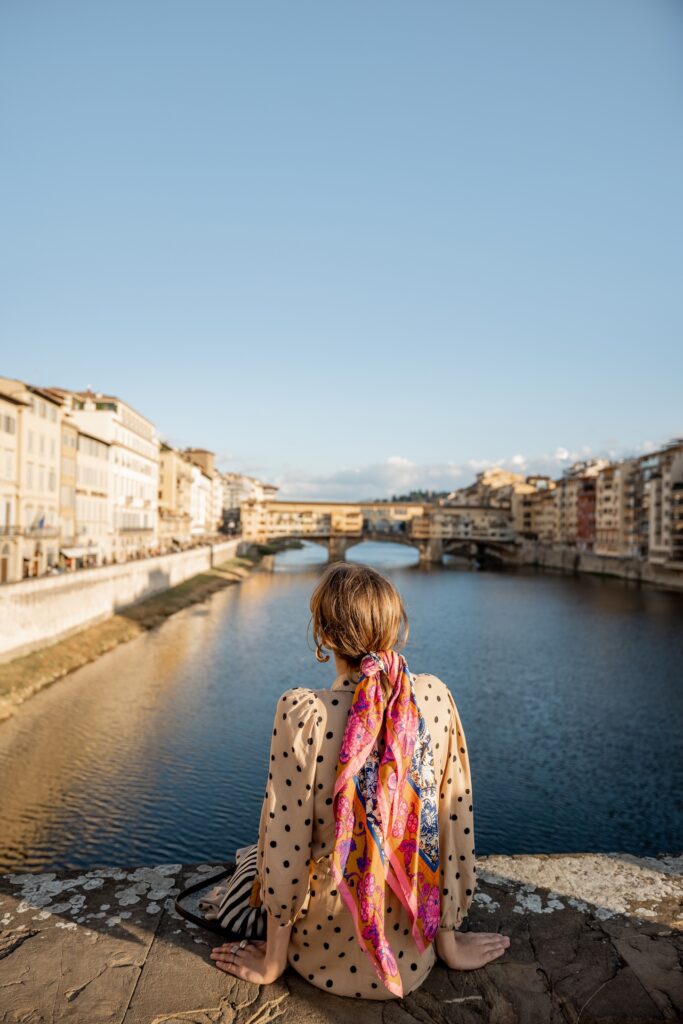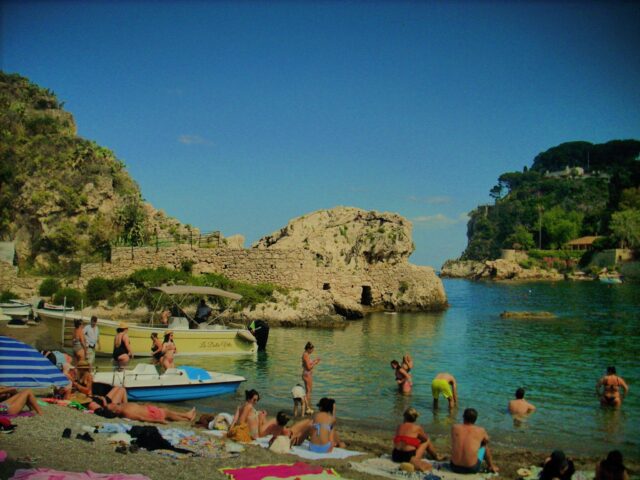OPINION: From One Study Abroad Student to Another

An NYU student is receiving backlash after writing an article about hating her study abroad experience in Florence, Italy. As another NYU student who studied in Florence, here’s what I think.
Stacia Datskovska is a journalism and international relations major at New York University. Her studies required her to spend a semester abroad, so she packed her bags and flew to Florence, Italy for the fall 2020 semester. She hated it and decided to tell the world why.
But many people are upset with Datskovska’s reasons for hating her time in Florence. She outlines four main factors: the difficulties of having seven roommates, an overwhelming “pressure” to travel on weekends, the “hostility” of native Italians, and the feeling of missing out on her life back in New York City.
Her piece is sparking widespread controversy. Responses are ranging from readers thinking Datskovska’s complaints are “entitled,” to blaming editors for publishing a piece knowing the negative reactions it would receive.
The absolute entitlement https://t.co/00e5hDskXl
— Adrián Rodríguez (@AdrianBremensis) March 14, 2023
Editor shouldn’t have published this without careful edits. Young journalism students are encouraged to get published and to pitch personal stories and it often backfires for them while the publication gets clicks. https://t.co/iIsNnKgsWX
— Abby Young-Powell (@abbyyoungpowell) March 15, 2023
I was an NYU Florence student myself, and here are my thoughts.
My college experience started in the fall of 2019. Months prior, I opened my NYU acceptance letter to its Liberal Studies program, an option I had agreed to when applying. As a chronically homesick person who loved the idea of NYU being 30 minutes away from home, my acceptance to NYU terrified me.
It was my absolute dream school, and had been since before I knew what college really was. But my acceptance was contingent on spending my freshman year in Florence. I cried and resisted, fearing the distance from everything I knew. My parents, however, knew how much of a privilege study abroad is. They were right, no matter how much I refused to admit it at the time.
Overall, I had an amazing time. I became the best version of myself, explored the world, learned, and created lifelong friendships. But NYU Florence, and Florence as a whole, were not free of all issues.
There are crucial problems that need to be addressed, but continue getting swept under the rug.
Less than a month into my time there, I was in the city center waiting for one of my (many) student visa appointments. I had a Chai necklace on, which I wore constantly, so I didn’t think twice about it. A stranger came up to me, saw this sign of my Judaism, and did a Nazi salute. He luckily left me alone afterward, but from day one I knew any visible signs were better off hidden.
In 2020, one of the NYU Florence faculty members, Amanda, resigned. She speaks about her complaints of racism in the workplace being ignored. “I realized that nothing was actually going to change,” she states in an interview. “A lot of the talk of it being inclusive — a lot of it was posturing, because I had all the conversations and nothing happened.”
Amanda has legit complaints, but all I read in this article was “I was able to enjoy the privilege to study abroad, but decided to hate it because things didn’t go my way, then proceeded to rub my American belligerence in the local’s faces by going out of my way to upset them”
— Anneis Anderson (@crayol4grl) March 15, 2023
No place in the world is perfect, but that doesn’t excuse instances of racism in Florence, both in and outside of NYU’s campus. In an article explaining how awful a study-abroad experience is, there should be mention of these severe and often ignored issues.
The problem is more pressing than getting weird stares for wearing Lulu Lemon in Europe. Unfortunately, more “relatable” and general complaints garner more attention, leaving other conflicts unresolved.
Study-abroad students are not owed anything from the spaces and cultures they are entering.
I’ve seen many study-abroad students from America arrive at their designated locations and expect perfection. There is often an idea that we are the guests, and the countries we visit are the hosts. But this isn’t true. Instead, we’re entering new spaces and cultures, unannounced to everyone outside of our study-abroad programs.
If we walk around in the U.S., we never have this expectation that everybody will be exceptionally nice to us. People can be rude, hostile, etc., so why do we expect something different the minute we go to a foreign country? We aren’t guests that a nation’s population agreed on having. We’re tourists, and our presence isn’t changing how anyone goes about their day-to-day lives.
The world is not social media.
A phrase being repeated more and more as time goes on. While many of us spend hours scrolling through social media every day, it’s easy to forget that it’s all a facade. From selfies to vacation clips, everything is posed. We see a few seconds, perhaps even a few minutes, of someone’s life that is edited to be flawless, and we take that as the truth.
It’s inevitable that this way of thinking can lead to disappointment once we encounter the fact that social media isn’t reality, and doesn’t come close to it. There’s no way to study abroad for months and have every second be perfect. But the power of editing convinces us otherwise.
Hating the opportunity to study in Florence then comes as a result of it not meeting expectations. Luxury New York City day-in-the-life TikToks don’t compare to seven roommates, $20 international flights for weekend trips, or some “inconsiderate” and “preposterous” people.
There are bigger things to focus on.
Datskovska’s complaints about studying at NYU Florence come from a personal perspective and experience. Two things can be true at once. The bigger issues at hand don’t negate the fact that someone’s personal experience may not be the best.
Still, these complaints and the attention they are receiving are yet another way to sweep crucial concerns under the rug. We’re worrying about the wrong things, and it’s time the conversation changes. It’s needed to change for years.

Writer | Tweet me @rachelnazar





